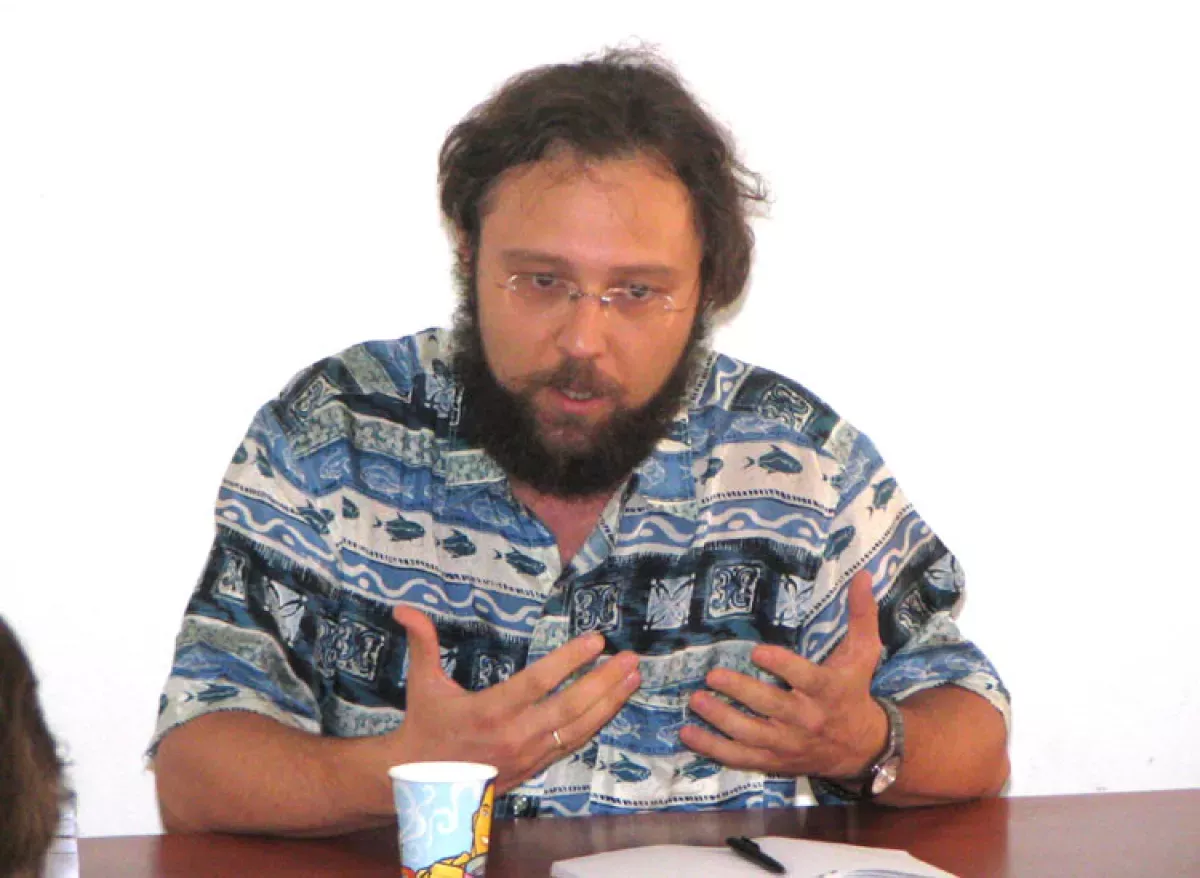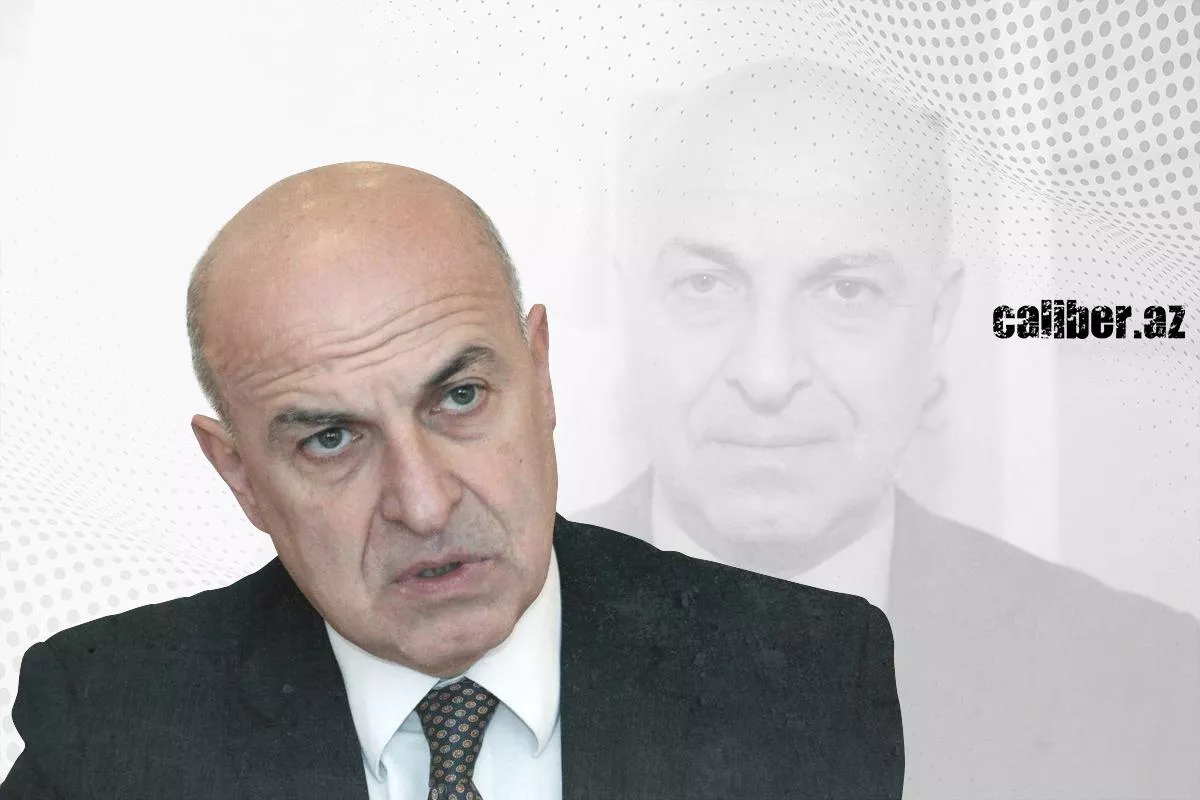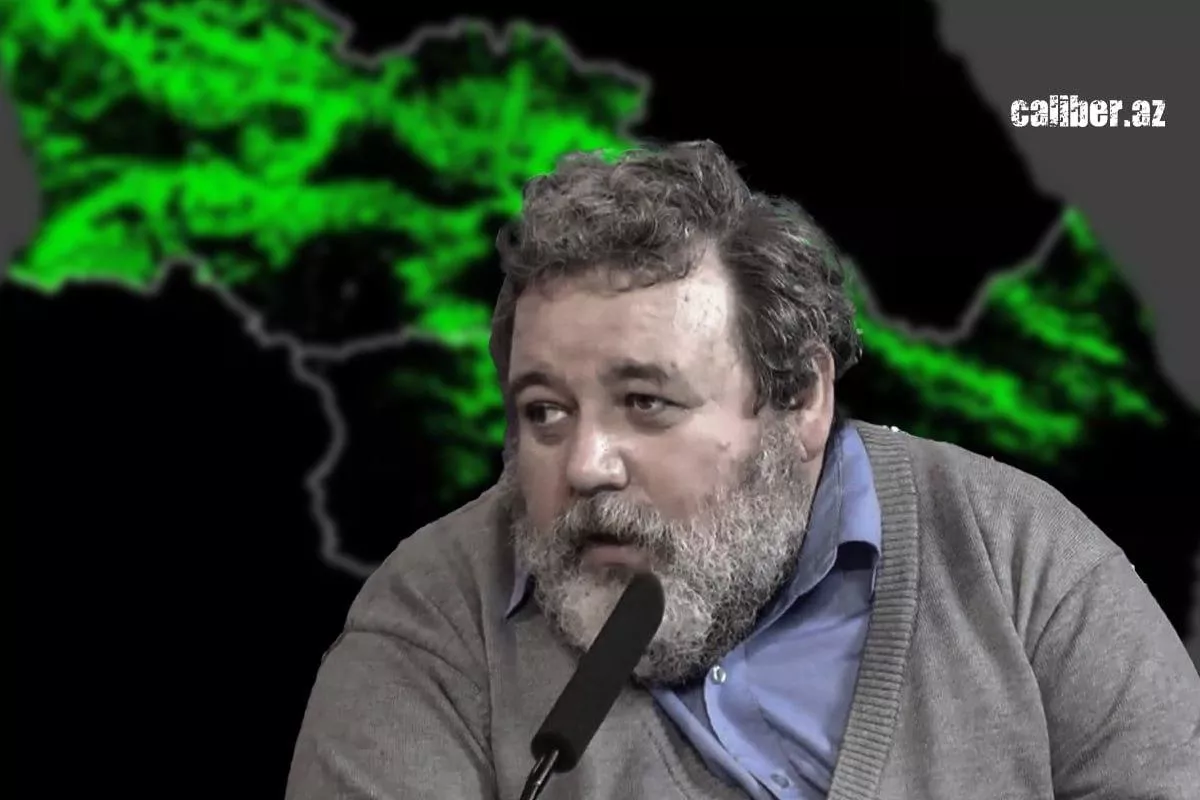Azerbaijan’s Washington breakthrough through the eyes of foreign experts How the Agreements Will Reshape the Region
Many politicians and political analysts from around the world are today sharing their views on the important agreements reached between Baku and Yerevan under the mediation of President Trump in Washington. They largely agree on one thing: this event has the potential to bring significant changes to the geopolitics of several regions.
It is quite clear that the Joint Declaration, signed by the leaders of the three countries, creates a new reality—one where there is no room for toxic players and self-interested parties, only friends, neighbours, and partners.
What do analysts think about this? How do they assess the potential of the signed document? Caliber.Az turns to foreign political experts to answer these questions.

Dmitry Radyshevsky, a political scientist from Israel and a graduate of the Harvard University Theology PhD program, is convinced that the event in Washington represents the greatest diplomatic victory for both Azerbaijan and the United States.
“Of course, now the influence of the United States in the South Caucasus has grown enormously. Trump has proven—something very important for his domestic approval—that he is a peacemaker who stops conflicts and restores American influence worldwide. That very influence that was severely undermined and lost during Biden’s administration—just recall the disgraceful withdrawal from Afghanistan. Trump is demonstrating that America is becoming great again by establishing significant control in a new region for it—the South Caucasus,” he said.
In his view, by helping Israel become a regional superpower, the U.S. is also restoring its influence in the Middle East, which is a crucial goal for the United States. America’s friends—Azerbaijan and Israel—also benefit from Trump’s presidency. Thus, the main winners of this agreement, summarised by the acronym TRIPP, are primarily the United States and Azerbaijan, as well as Armenia, since its isolation is coming to an end.
“Armenia is not only making peace with Azerbaijan but also normalising relations with Türkiye, which also benefits because it gains a direct transport corridor to mainland Azerbaijan. Consequently, Türkiye’s influence in the region and Central Asia increases significantly. The clear loser here is Russia, whose influence in the South Caucasus has now substantially diminished. However, I believe the Russian side is not panicking too much. The American presence in this region, including military and intelligence, is not yet significant enough for Russia, since its priority remains Ukraine and maintaining good relations with Trump. The real party that is worried and feels defeated is Iran, as it fears for its regime—the Americans will increase their military and intelligence presence along the northern border of the Islamic Republic of Iran,” concluded D. Radyshevsky.

In turn, Georgian diplomat and politician, former Deputy Minister of Foreign Affairs of Georgia and former Secretary-General of GUAM, Valery Chechelashvili, noted that the meeting in Washington was an epochal, historic event.
“I believe that the meeting of Azerbaijani President Ilham Aliyev, Armenian Prime Minister Nikol Pashinyan, and U.S. President Donald Trump at the White House on August 8, which resulted in the signing of the Joint Declaration, is a historic event, since the document emphasizes the importance of ensuring and strengthening peace between the states,” he said.
The expert believes that the very logic and format of the meeting confirm the significance of the process: “The Americans, specifically the administration of President Trump, conducted a very successful diplomatic campaign that weakened Russia’s influence in the South Caucasus. I think that in the Kremlin, in each of its towers, they are today asking themselves where they missed the moment when they still could have changed something.”
In his view, this is the inevitable outcome of Moscow’s policy in the region, a logical conclusion to the strategy Russia pursued in the South Caucasus: “One could say the era of Transcaucasia has ended. Politically, the Kremlin tried to revive it, but that was a concept that never truly existed in reality. Now the South Caucasus has a chance to become a region of stability, integration, and prosperity. This will benefit Azerbaijan, Armenia, and Georgia alike.”
According to Chechelashvili, Moscow’s imperial philosophy has led to the complete loss of trust among its neighbours.
“Russia behaved like an empire toward everyone—from the South Caucasus to Ukraine and Central Asia. As a result, it has almost no genuine allies left. For many years, the Kremlin played on the contradictions between Baku and Yerevan, but after Azerbaijan restored its territorial integrity, the situation changed radically. Russia failed to notice these shifts, lost the initiative, and continued to use its usual methods of influence—only to find that they no longer work,” he said.
Chechelashvili is convinced that Moscow’s actions have resulted in a strategic mistake: “Over the past six months, Moscow has taken an especially counterproductive line. Let’s recall the incident with the Azerbaijani plane. Russia did not apologise sincerely. Putin simply called and expressed regret—that’s not an apology. Azerbaijan showed firmness, while Moscow went into a defensive shell. All this is the behaviour of an empire from centuries ago. People used to say the keys to peace were in Moscow; today, they are in the hands of the Americans. This is evidence of Russia’s complete diplomatic failure in the region.”
The political analyst also expressed confidence that Azerbaijan’s position on the international stage has become even stronger: “Azerbaijan is strengthening its statehood, enhancing its authority, and gaining guarantees from serious partners—Türkiye, Pakistan, the countries of the Islamic world—and now also from U.S. President Donald Trump. By the way, he reposted President Aliyev’s statement twice on his Truth Social. Moscow should have been alerted back then, but no conclusions were drawn.”
He also noted that a new chapter has now opened in the history of the South Caucasus: “The region belongs to three states. We are connected not only by geography but also by interests. Awareness of this fact, the desire to synchronise our efforts, and the growing agency of the region in the eyes of global players, primarily the United States, are the key elements of what we witnessed in Washington. We have new opportunities. The main thing is not to lose them, but to implement them wisely.”

In turn, well-known Israeli writer, publicist, military expert, and historian Petr Lyukimson noted that he has repeatedly said Armenia has no other way out of the economic and political deadlock it finds itself in except to make peace with Azerbaijan.
“There is no doubt that a peace treaty is needed and beneficial primarily for Yerevan, as it opens a fundamentally new stage in the development of the Armenian economy and the expansion of regional ties. Azerbaijan and Georgia, in turn, gain many dividends—for example, from joint development of mineral deposits located on the borders of the republics, which neither of them could manage alone. Here, once the treaty between Armenia and Azerbaijan is ratified by the parliaments of both countries, American investments could also play a role,” the expert believes.
However, in his view, all this is only part of the broader geopolitical shifts currently taking place across the Near and Middle East, the South Caucasus, and potentially extending into Central Asia. U.S. President Donald Trump is, without a doubt, an excellent businessman trying to redraw the geopolitical map of the world.
“Trump builds his political plans based on an understanding of global processes, taking into account the interests of countries, peoples, and their leaders. It was not Trump who provoked the increasingly centrifugal movement of Azerbaijan and Armenia away from Russia — given Russia’s behaviour on the international stage and the existing realities, this was predictable.
Ilham Aliyev’s policy is distinguished not only by realism but also by foresight. Under his leadership, Azerbaijan has become the leading actor in its region, and President Trump has always demonstrated an ability to instantly identify who the main player at the table is and whom to deal with first. So, I want to congratulate all participants in this process, which should ultimately lead them to peace and genuine prosperity,” the political analyst emphasised.








